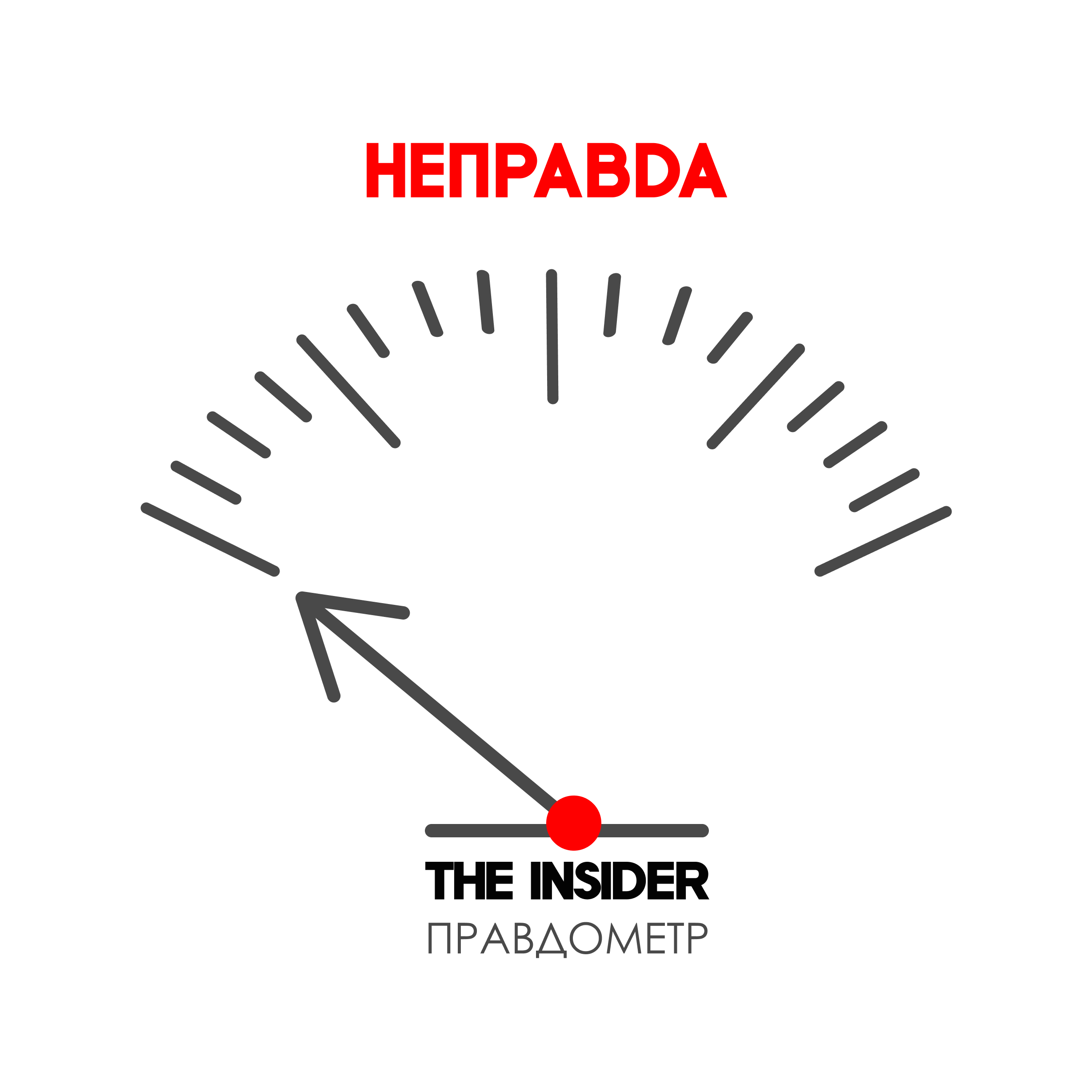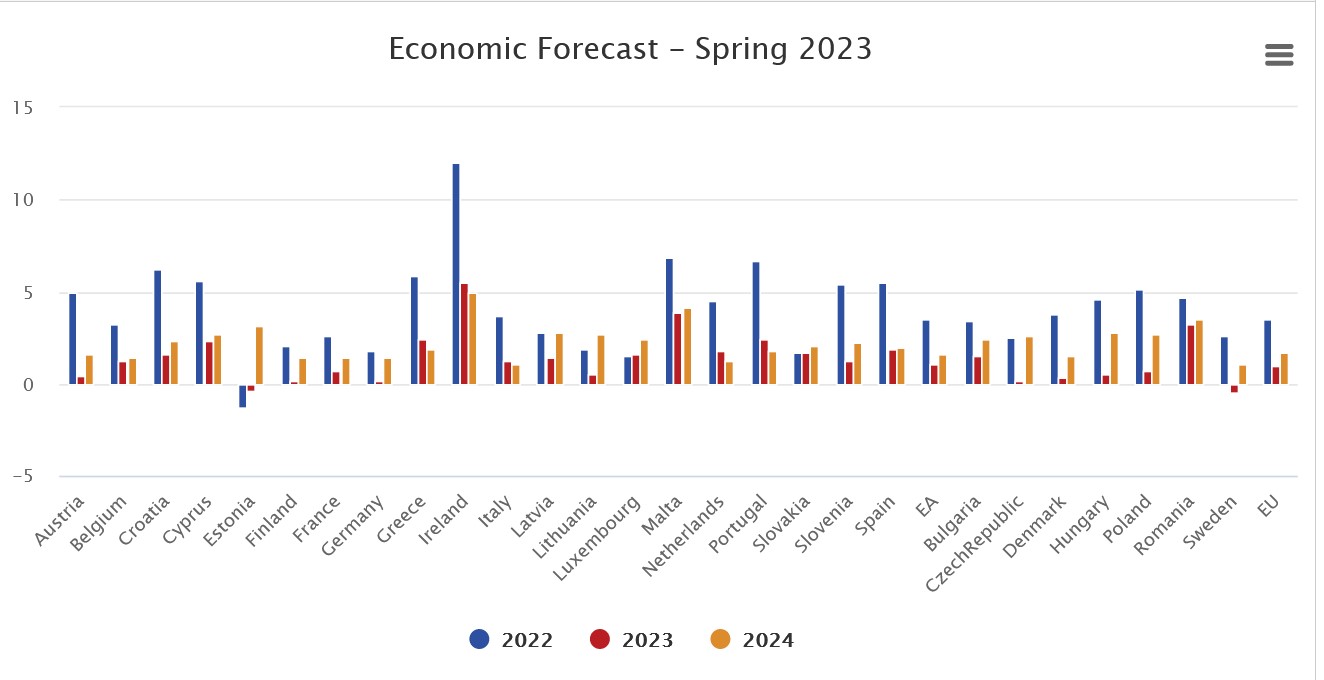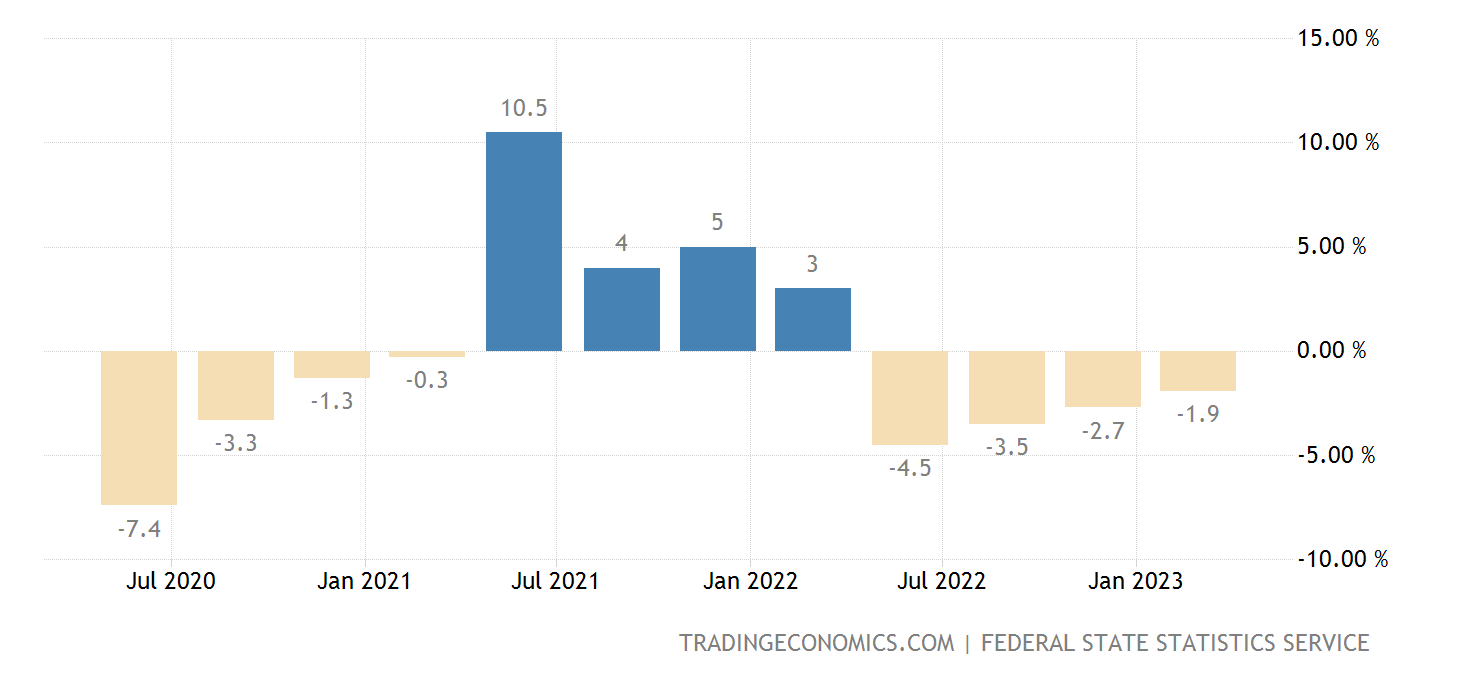Vladimir Putin's speech at the plenary session of the Eurasian Economic Forum was unusually short, but it was not without a fake:
“The numbers speak for themselves: despite the large-scale crisis in the global economy and trade, considerable geopolitical risks and uncertainties, the total GDP of the Eurasian Union states for 2022 decreased, but decreased by 1.6 percent. And some experts there, as our people say, “over the hill”, predicted a completely different scenario, a collapse scenario. Nothing like this is happening and has not happened and clearly will not happen again. Let me remind you that both our experts and international experts for Russia already show GDP growth. At first they talked about 0.7 percent. Let me remind you that in the leading economies of the European Union experts show a minus for the current year. At first we were talking about plus 0.7, now they say plus 1.5, and maybe up to two percent. And that says a lot."

In May, the European Commission published its Spring Economic Forecast, according to which the GDP of the EU countries as a whole in 2023 will grow by 1% (the previous forecast, winter, provided for growth by 0.8%). Growth of 1.7% is projected in 2024. The GDP of the euro area countries, according to experts of the European Commission, will grow by 1.1% in 2023, and by 1.6% next year.
The forecast for each of the EU countries has also been published. A fall in GDP at the end of 2023 is expected only in two of them – Sweden (by 0.5%) and Estonia (0.4%). In all others, GDP will grow; the largest growth is forecast in Ireland (5.5%). In the largest economies of the EU, a small, but still GDP growth is expected: in Germany by 0.2%, in France by 0.7%, in Italy by 1.2%. In 2024, GDP growth is expected in all EU countries.

As for Russia's GDP, the Bank of Russia at the end of April predicted growth in the range of 0.5%–2%, the Ministry of Economy – an increase of 1.2%, Sberbank – 1%, the IMF – 0.7%. At the same time, Trading Economics notes that in the first quarter of 2023, Russian GDP decreased by 1.9% compared to the corresponding period last year.

In the future, however, some growth can be expected, as the low base effect will affect: most of the first quarter of 2022 is pre-war time, and in subsequent quarters sanctions were already in effect and GDP fell below the level of the crisis year of 2020.


